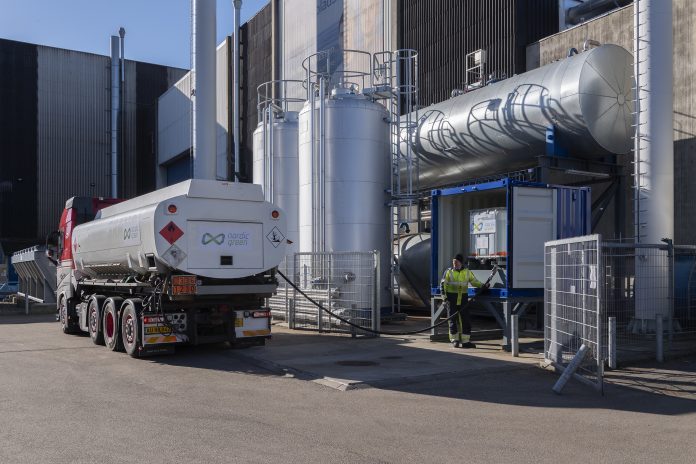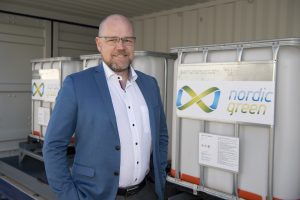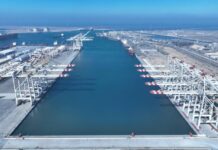
Danish marine technology company Alfa Laval has announced that it will begin large-scale tests with methanol as a marine fuel with its partners at MAN Energy Solutions, Danish Technological Institute (DTI), Technical University of Denmark (DTU) and biofuel producer Nordic Green.
[s2If is_user_logged_in()]Investigations into the operation of marine diesels using methanol without a pilot fuel have been under way for some time with both DTI and DTU running tests on smaller engines as part of the preliminary testing programme, which is being funded by the Danish Energy Technology Development and Demonstration Program (EUDP).
Currently, the use of methanol requires a pilot fuel explained Lars Skytte Jørgensen, vice president technology development, Alfa Laval Marine Division. This means vessels need two fuel lines and different types of fuel tanks on board. “If methanol from renewable sources could be burned directly in standard compression engines, it would offer a shortcut to carbon-neutral shipping,” he added.
Klaus Petersen, engine specialist, performance & optimisation at MAN Energy Solutions believes, “The move to clean-burning methanol will be a crucial step in decarbonising the shipping industry. Through our collaboration with Alfa Laval and the other project partners, we hope to make that step significantly easier for vessels to take.”
Maersk Line has already decided to build a 2,000TEU feeder vessel that operates on ‘green’ bio-methanol, with the carrier expecting bio-methanol, ethanol or ammonia to be the transitional fuels in the near future, over the next 10 years.

Bo Gleerup, CEO at Nordic Green, told Container News, that the development of bio-methanol, from manure and other waste products has great potential in reducing carbon emissions by up to 90%, with some energy use in the transportation and storage of the fuel and the manufacture in some methodologies meaning that the fuel is not 100% carbon free.
“We believe that in 10-20 years-time methanol will be in widespread use, it is the fuel of the future, because all organic waste matter including food, wood and other sources can be used to produce methanol, there is a huge potential for feedstocks, even tyres can be gasified” said Gleerup.
For Gleerup the major question is developing a market for the fuel so that it will become cost-effective to produce and use, the Maersk vessel order is the first step in that direction, he said.
[/s2If]
[s2If !is_user_logged_in()]Please login or register to read the rest of the story[/s2If]
Nick Savvides
Managing Editor





